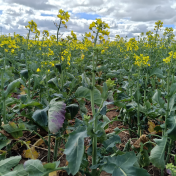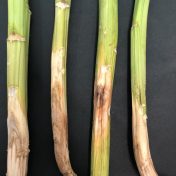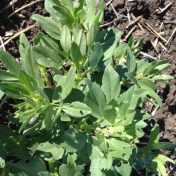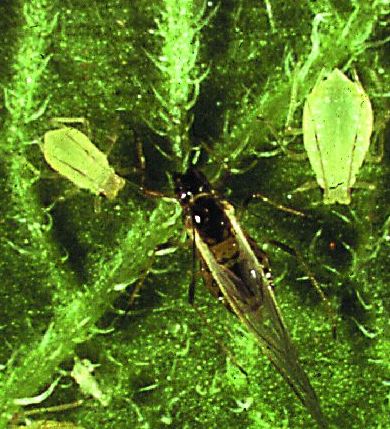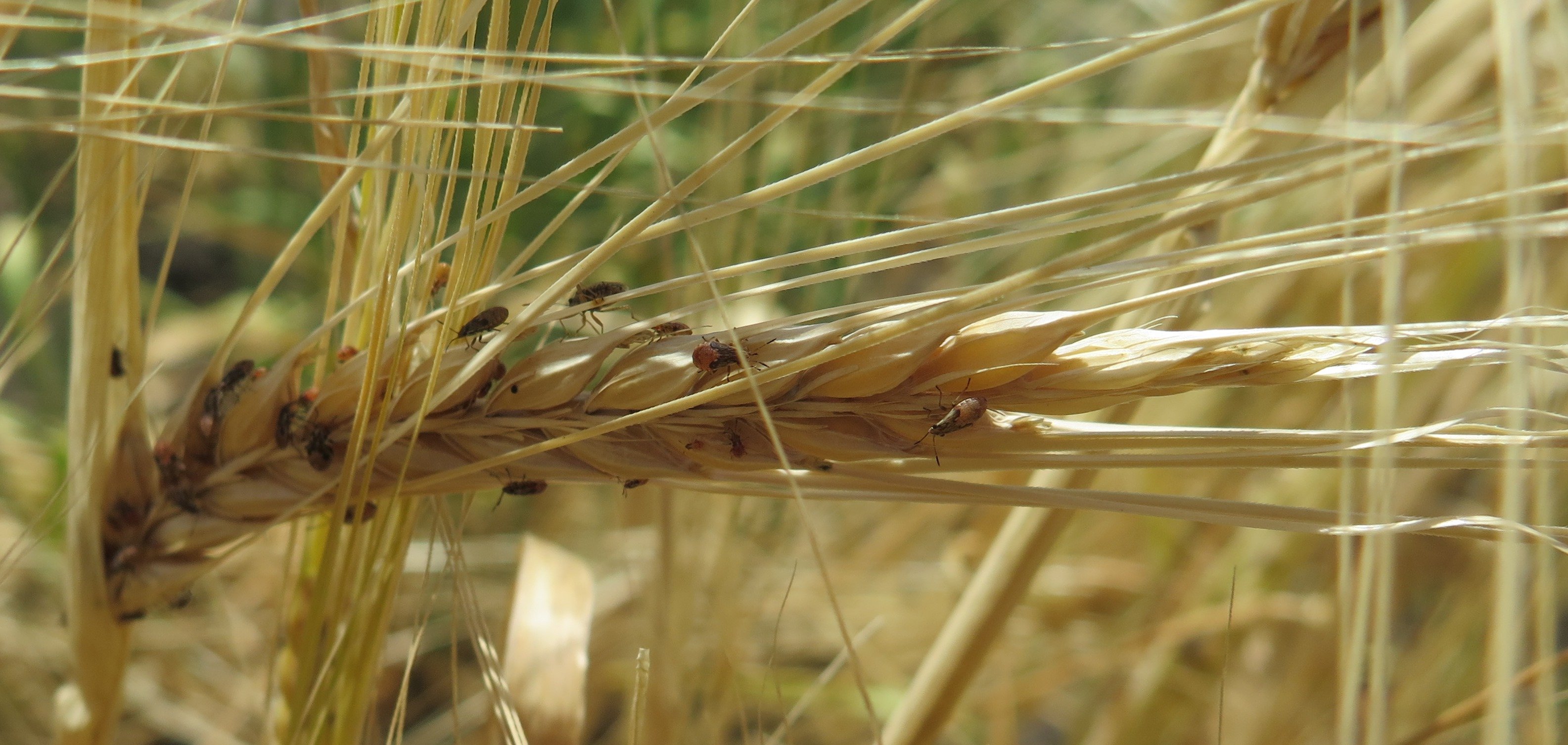More growers are planting canola in southern Queensland this season, so it’s important to be on the lookout for turnip yellows virus (TuYV) – one of the main viral threats to canola. What is TuYV and why does it matter? TuYV is a persistent virus that affects canola and other brassica crops. It is transmitted by green peach aphids (GPA,… Read more »
Recent weather conditions have led to isolated outbreaks of two fungal diseases, fusarium crown rot and sclerotinia stem rot, in several grain crops across southern Queensland. Crown rot Crown rot, primarily caused by Fusarium pseudograminearum, has been detected in several barley crops across southern Queensland, but other winter cereal crops and regions are also at risk. Initial disease symptoms include… Read more »
While drought has dashed the planned rotations of many growers, there is still a risk of pest outbreaks at this time of year. Below are some of the most common to keep an eye out for. A note on withholding periods following insecticide use in crops that are diverted to stock If insecticide treatments have been applied to crops which… Read more »
In the autumn and early winter of 2014, large areas of canola in South Australia, Victoria and southern NSW were heavily infested with green peach aphid (GPA), and many of the infested crops tested positive for beet western yellows virus (BWYV). GRDC TV has compiled a series of three videos that discuss what factors contributed to the GPA outbreak, and… Read more »
Rutherglen bug (RGB) numbers in canola stubble are again high in some fields. These infestations pose a risk to neighbouring crops, either through damage to establishing summer crops or contamination of unharvested winter crops. Both the canola and adjacent crops warrant monitoring for RGB infestation and movement out of the canola field. If large number of nymphs move into adjacent fields with seedling… Read more »
As canola sets and matures pods, and spring temperatures rise, there are a number of caterpillar pests that are active in this crop. Along with helicoverpa there are diamondback moth larvae (Plutella xylostella) and cabbage white butterfly larvae (Pieris rapae) in crops. It is critical that you can distinguish the species, and be familiar with their respective thresholds, in order… Read more »
Paul Grundy, Adam Quade and Richard Lloyd have established 8 trial sites in the Spring Ridge area to evaluate the impact of simulated aphid damage on flowering canola. Treatments simulate aphid infestations that limit flowering and pod set. Low, medium and high intensity damage applied in replicated trials. Assessments to made on time to maturity, plant architecture, yield, and quality.
Over the past couple of weeks there have been reports of whitefly adults infesting canola in the Central West and Lachlan regions of NSW. This is not an occurrence that has been recorded before, so we don’t know conclusively what the outcome will be of these infestations. What I have done is pulled together information on whitefly that will help… Read more »
Rutherglen bug (RGB) are best known for the damage they can cause in sunflower and sorghum during grainfill, but they can also damage and even kill seedlings when present in large numbers. In 2012 RGB damaged establishing spring crops in areas of southern and northern NSW. This spring, in some crops there are large numbers of RGB in the canola… Read more »
There are a number of canola crops in this season, and as the weather warms up the aphid numbers are building up in some of them. The aphids that colonise canola are most commonly the cabbage and the turnip aphid. There may also be a few green peach aphid present. The aphids colonise the terminal end of the flower spike… Read more »
